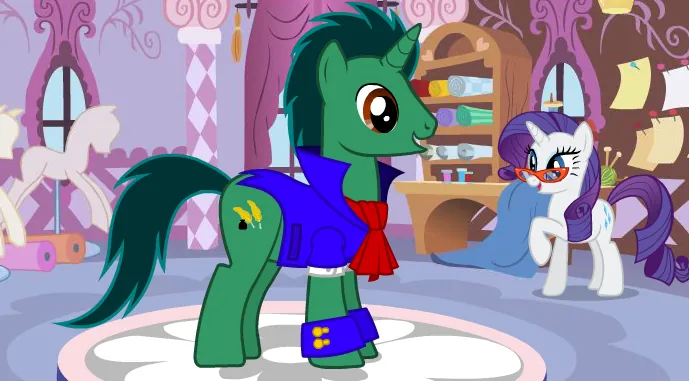DuplexFields
Ask me how the FairTax proposal works. All four Political Compass quadrants should love it.
No bio...
User ID: 460

I’ve noted before the similarity of America’s adversarial justice system to the scientific process: a theory must be proposed, all evidence (experimental, forensic, eyewitness) must be logged, all reasonable alternative explanations must be falsified, and only then do we consider it proved, and thus, known.
But there’s a well-known way around the scientific method.
A focus on novel, confirmatory, and statistically significant results leads to substantial bias in the scientific literature. One type of bias, known as “p-hacking,” occurs when researchers collect or select data or statistical analyses until nonsignificant results become significant.
The judge told the jury to break into groups of four, and that each group only had to find one of the three modifiers to be true — and they didn’t have to be the same modifier. Judge Merchan has p-hacked misdemeanors into a felony!
Maybe the neocon or Whig wings, but the minarchist and libertarian wings are quite willing to end subsidies.
In that case, I recommend checking this chart (PDF link) to see how many codependent characteristics you currently have. You should know that this was made for a vaguely theistic 12-step recovery group designed by and for neurotypical people.
Although I don’t know your exact situation, my mind immediately goes to the elements of harmony and the levels of relationship.
First, identify the level of relationship with the person you’re trying to have cooperate. Acquaintances share attributes, Friends share experiences, Ohana share purpose. (Ohana, Hawaiian for family, is the name I’ve chosen for the category of people who go in together on ventures, such as marriages or businesses, or who rely on each other for survival such as brothers in arms. Best friendships, our closest confidants, are here too, as are intimate lovers. They hold our hearts and hopes, and a betrayal from Ohana hurts more than anything else.)
Identifying the level of the relationship can help you to see what you’re asking from their perspective; do they consider you to be their acquaintance, friend, or Ohana?
An analogy is a house. Acquaintances get basic hospitality; they can come into the living room, the dining room, the den, the backyard, and the bathroom. Friends can come into the kitchen and get snacks from the refrigerator, get asked to help with the dishes, can hang out in personal spaces occasionally, and can borrow books from the shelves. Ohana have a free bed whenever needed, can leave stuff in the house indefinitely, can share resources, may even be asked to do laundry.
Next, consider the elements of harmony and where the other person stopped being an “us” and started being a “them” to you: are they being unkind, untruthful, disloyal, ungenerous, too serious, or under-involved?
If not, it’s not a relationship issue but just someone not modeling the world as you do. Being neuro-atypical myself, this is my everyday life; I have to make people see things the way I do by starting from their perspective and working toward mine. It’s difficult and requires patience, coming to an understanding with people who don’t see the same structures of importance and imperative when they look at the world.
Hear, hear.
There’s a statement which I’ve heard semi-frequently in church and on Christian radio, and I know not its provenance: “God has no grandchildren.” It means that people may be culturally similar to their Christian parents and ancestors, but faith in Jesus as savior and God as father is an individual matter, not a familial/cultural one. For example, my father’s stories of his conversion have been vitally important to my own faith, but my faith has a different genesis (pun intended) and is inextricably mine.
Institutional churches, like the Church of England, tend to lose sight of this fact and settle for children inheriting the faith of their fathers, putting it on a shelf for safekeeping like the family china and bringing it out on holidays.
The dichotomy between communitarian tribalism and serfdom under “great men” was broken by capitalism/libertarian thinking in the 1700’s, and resulted in more prosperity than the human mind could handle.
We’re living in the ruins of that singularity, which was seized, restrained, and looted by both communitarians and “great men” to the point where prosperity of innovation has been reduced to the dull grey grinding of the workaday life. The point of life is, currently, getting a good credit score, and affording good medical insurance to avoid ruining the credit score come the next emergency.
I presume here you meant the able but non-productive/anti-productive, the purposeful parasites, the proud takers and exploiters, the looters of the producers in Ayn Rand’s terminology. (I have no problem with society supporting the unable/disabled, but I hope they can be supported in becoming artists or scientists of some sort. Either way, I don’t count them as looters.)
The trick of a functional civilization is reducing the incentives to become a looter and lowering the bar to becoming a producer. We seem to be doing the exact opposite, from my lower-middle-class perspective.
The point wasn’t just anti-corporate, it was anti-marketing. It’s in the name. McDonalds cashiers would ask, “Would you like to supersize that?” to upsell. People who can’t say no and people with weak personal boundaries were (perceived as) getting fatter than they would have anyway. It appealed to defending less able people against attacks.
Remember the viral scissor question from a while back, “In front of you appears red and blue button. If more than 50% of the people presses the red button, everybody who pressed the blue button dies.” A lot of people defended pressing the blue button because even if they themselves thought it smarter to press the red button, they’d press blue in case other people, possibly within their circle of friends, were tricked into pressing blue. They were trying to be heroes.
And it “worked”: one effect of the film was the end of the supersizing upselling, and eventually the end of the supersize option.
Exactly. When one party can simply import third world socialists (including religiously socialist Muslims) and make them voters, the other party has to either become a competing socialist party or stand on principle and expire.
I read ratfics on lunch daily at work. Not much simpler than that. I read both HPMOR and Worm that way.
Watched The Mentalist from start to finish. Loved it.
Person of Interest on Netflix is a CBS drama which may scratch the itch of The Mentalist, it’s a series where a Special Operations veteran has to discover if today’s person will be the victim or perpetrator of a planned murder. Then somehow it morphs into a futurist series about the singularity and AI, and actually gets even better. It’s both competence porn and rationalist.
For something more comedic, just as rationalist as The Mentalist, yet still on the police procedural side, try Psych, currently on Amazon Prime. A slacker poses as a psychic consultant for the police, never letting on that he’s highly observant and solving them through regular detective skills.
It’s quite a book, and for me the most underrated aspect is how endgame HPJEV is a metaphor for how quick-takeoff AI constrained by alignment measures might still be able to do significant harm.
From my Fox and Trumpist sources, it has clauses which allow bureaucrats to give American citizenship to swaths of people and restrict the President from using his existing and Constitutionally granted powers to do anything about border crossings until certain thresholds are met. Whatever else is in the bill, those two are poison pills for the voting base of the GOP, so their Congresspeople dare not vote for it.
I just don’t see it as something that always and universally applies to everyone in all situations.
And that's why I posted it in the Wellness Wednesday thread as mental wellness advice instead of the Friday Fun thread as lexical insight porn.
As far as agonizing or guilt-tripping over whether a given "should" is a problematic should inspired by bad boundaries or anxiety or low self-worth etc., sounds like an anxiety problem I don't have and thus don't need to worry about.
In other words, I shouldn't worry about shoulds, and nobody should worry about my shoulds either. And I don't, except when someone makes a particularly poignant or potent point.
In wellness support groups among people with existing persistent unhealthy self-talk, talking about “should” statements usually involves examining whose expectations, standards, or priorities are bundled into that “should”. There’s nothing wrong with the self-owned or logical should as long as one recognizes the unspoken imperative which by its very nature involves an emotion, however dispassionate:
- “I should study more” so I can learn the subject better / so I won’t get bad grades / so the teacher likes me more / so my peers have a better opinion of me / so I can show good grades to my parents / so I can keep my scholarship / so I’m not wasting time / so I’m not a useless lump etc.
Yeah, yeah, but it does take a while to work out which estimations of one’s worth and abilities are just delusions and which ones model reality.
The mind can be as hallucinatory as an LLM on the small details, especially since, as an autistic person, my learned understanding of emotions is basically prosthetic for my missing emotional instincts.
Do people really process language in this way?
Sort of yes, but not in the way I think you’re asking about. This post is about a few of the wellness-related emotion-based implications used by an unhealthy subconscious which uses “should” to smuggle a personal negative judgment in with a prioritization statement. As a person with autism, I have found that stating the exact implications of my innocuous statements can cleanly uncover my subconscious/unconscious expressing someone else’s emotions as if I’d originally generated them.
My “should” analysis hit me hard since I’ve been working on the unconscious portion of my weight problem lately with some success. I’d returned to “should” emotion-statements without noticing: “I shouldn’t eat, I’m full” instead of the decisive “I won’t eat” or the confessional “I want to eat”, “I should be able to turn down food” instead of the opportunistic framing “I can”, and so on. My own big realization struck whilst reading about someone with ADHD recounting making the statement “I should be able to focus” who was then told by their therapist ‘When you use the words “I should”, you’re silently finishing the sentence with “…in order to be worthy of love and respect.”’
Neither the human seeking of self-esteem, nor the akrasiatic self-negation of unworthiness emotions, care about the logic of inability/disability. They are of a different nature than logic.
From an old Reddit post: When you use the words “I should”, you’re silently finishing the sentence with “…in order to be worthy of love and respect.”
Spot on! Also, “I should [verb]” is a comparison of my choices with a standard I got from someone else if I can’t truthfully say “I want to…” or “I need to…” in its place. If that replacement doesn’t help, I can try replacing it with “I could…” or “I can…” to replace obligation with opportunity and maybe even place it in my Next Actions queue, pre-choosing it in a way.
There’s also “I should be able to…” which is a similar dynamic relating ability to worth.
Train it on Kal Bashir’s many posts about the Hero’s Journey?
I don’t know as I haven’t done the math, but the current flow rate of migrants, refugees, and immigrants are being cited by economists as being good for the economy by depressing wages. Fewer than that.
It starts slow, like the original Heston film, and builds its pieces one by one. It earns every bit of spectacle through steady worldbuilding, and is character-driven from start to end. Even the seemingly random twists are explained in retrospect if you pay attention.
The core of the story is heavily intellectual, and I really shouldn’t give any spoilers because the story is a delight when seen through the main character’s eyes, but they’re readily available if you go looking.
I think I’ll go see it again, in a bigger-screen theater.
Except for a few long shots and obviously composited shots, it didn’t trip my uncanny valley sensors. I thought most of the close-up work looked practical, possibly with ape suits with green faces. I’ll look forward to a Making Of, because it honestly looked like real talking apes for most of it, and I stopped caring about a tenth of the way through.
The story and drama was, for me, as much worth it as the spectacle. The idea of what makes a civilization runs through the entire film, more than any previous entry in the series. Any lingering questions I had about the setting, by the end were answered in spades.
The new movie Kingdom of the Planet of the Apes is absolutely well worth watching, as an entertaining film and a rationalist SF film. I deem it worthy of the franchise name and its classic SF heritage.
One bonus is that you don’t have to have watched the previous reboot trilogy series, they’ve included minimal continuity but honor what they have.
EDIT: There’s exactly one bit of woke, but it’s easily ignored as they don’t make a spectacle of it. It was probably as required in order to have it made as the few swear words were to have it rated PG13.
In other words, someone who's homeless can immediately become not homeless, right, if they find shelter. Someone who is addicted to drugs, it's not so -- so easy. It seems to me that in Robinson, it's much easier to understand the drug addiction as an ongoing status, while, here, I think it is different because you can move into and out of and into and out of the status, as you would put it, as being homeless. - Roberts
Interesting to pick apart the hidden variables. With drugs, the addiction is the status and being high (or low, or otherwise altered) is the desired condition caused by the regulable conduct of using drugs. Homelessness (or rather shelterlessness) is here treated as the undesired condition resulting in the regulable conduct of sleeping in public, and the indigence/extreme poverty is the status usually conflated with the condition of homelessness.


So does paying a grifter to go away if they sign an NDA with a huge clawback clause.
More options
Context Copy link